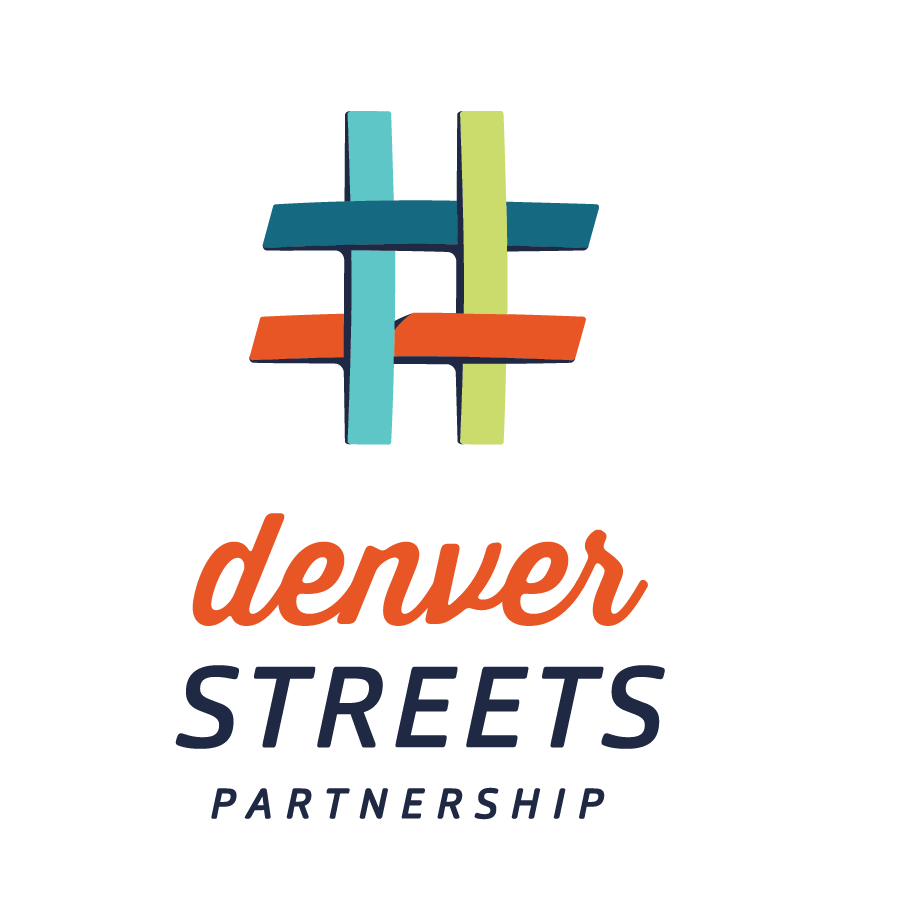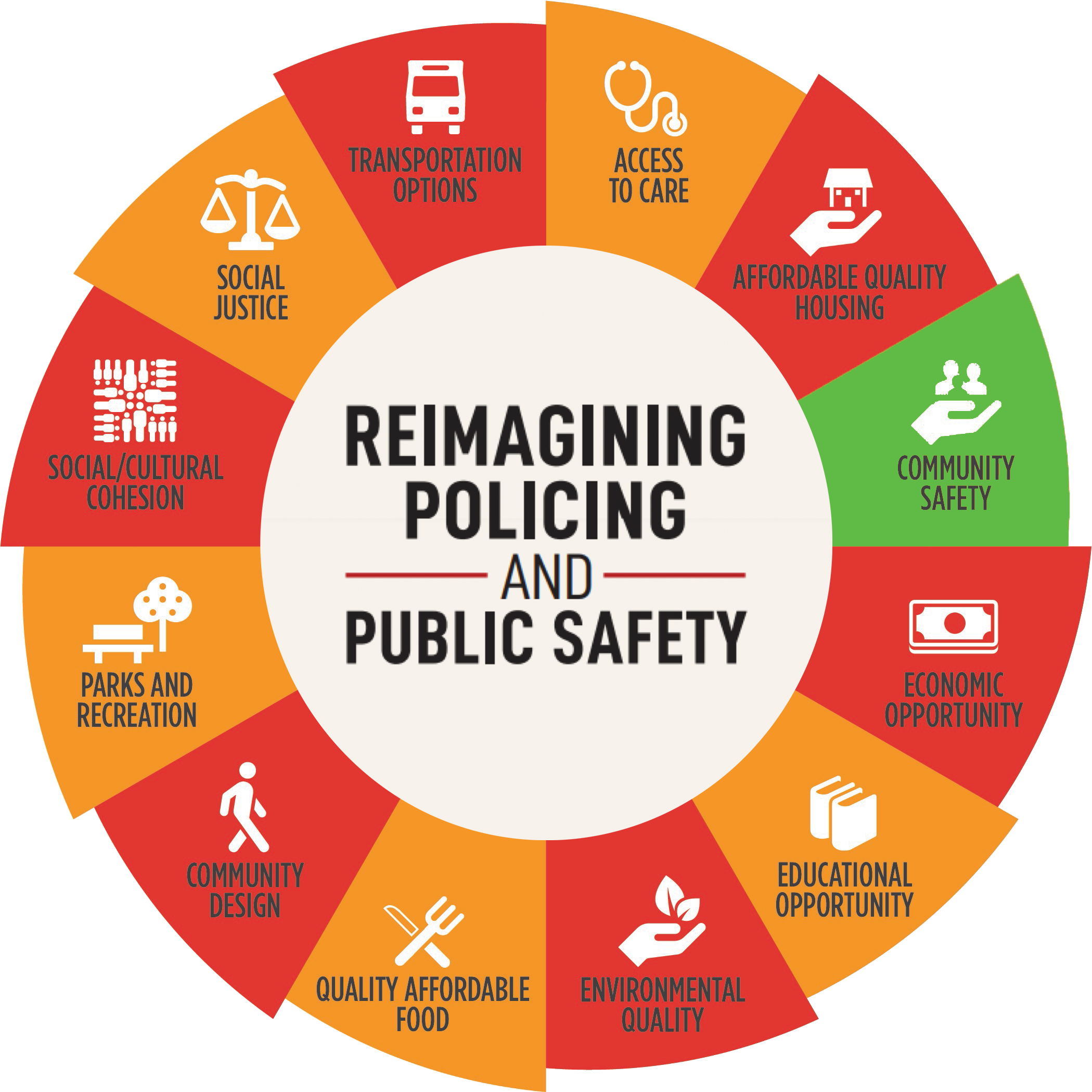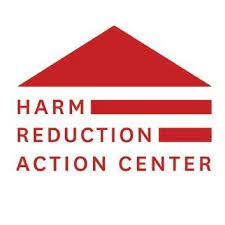Groups urge Denver and RTD to make decisions about Denver Union Station founded in compassion and dignity
December 10, 2021
Mayor Michael Hancock
City and County of Denver
1437 Bannock Street, #350
Denver, CO 80202
CEO and General Manager Debra Johnson
Regional Transportation District
1660 Blake Street
Denver, CO 80202
Dear Mayor Hancock and CEO and General Manager Johnson,
On behalf of the Denver Streets Partnership (DSP), Denver’s Task Force to Reimagine Policing and Public Safety, and the Harm Reduction Action Center we are writing in regard to your recent response to public safety issues at Denver Union Station to offer some concerns and recommendations, particularly as it relates to Denver’s population of unhoused individuals. DSP is a coalition of community groups advocating for people-friendly streets in Denver. The members of our coalition believe in an equitable and vibrant Denver that guarantees our public spaces are designed for people. We believe human dignity should be the guiding principle for the design of our transportation system so that everyone can thrive and connect to what matters most. The Task Force to Reimagine Policing and Public Safety is a coalition of over 40 community organizations, as well as civic leaders and city officials, who work together to develop solutions that empower the community, minimize unnecessary police contact with vulnerable populations, and heal the wounds of injustice and systemic oppression. The Harm Reduction Action Center works to educate, empower, and advocate for the health and dignity of Denver’s people who inject drugs, in accordance with harm reduction principles and is committed to serving Colorado’s public health by working to reduce the harms associated with drug use.
As you continue to work on solutions to address public safety issues, support unhoused individuals, and address the root causes of homelessness, we urge you to make decisions founded in compassion and dignity. Everyone in our community deserves to feel safe—that includes transit operators, residents and visitors of Denver, and our unhoused neighbors. The Task Force recommends that Denver “create permanent… decision-making roles for community… in defining, understanding and producing public safety policies, procedures, rules and practices.” We recognize that no one agency can address all of the societal factors contributing to the situation at Denver Union Station alone, but Denver, RTD, and relevant community based organizations, like the Harm Reduction Action Center, should work together to establish policies with the community that create a safe and comfortable environment for all people and serve those who need support. RTD has a stated commitment to offering safe, clean, reliable, courteous, accessible, and cost-effective transportation throughout the District to all constituents. This must include people experiencing homelessness. Transit stops and stations are public spaces that are critical to our community, like libraries and parks, where all should be welcome.
We are especially concerned about the calls for more police presence and urge you to consider avenues that do not rely on increased law enforcement. People of color, unhoused individuals, and people experiencing mental health issues are more likely to be targeted by increased enforcement. At a time when communities of color across the nation are calling on leadership to decrease officer initiated interactions, including Denver’s own Task Force to Reimagine Policing and Public Safety, we should be judicious in how we respond to public safety concerns. The Task Force recommends that we 1) minimize unnecessary interaction of law enforcement and the criminal legal system with the community, and 2) empower the community with resources to adequately address socioeconomic needs and provide for their own public safety. We fully recognize this is a complicated situation and that there are serious safety and crime issues at Denver Union Station that require intervention. We urge you to explore a nuanced response that not only creates a safe and comfortable environment for all people, but also ensures that people of color are not disproportionately targeted by police and that people experiencing homelessness are not criminalized simply because they are seeking shelter.
Denver and RTD should look to Philadelphia’s Hub of Hope as a standout model to emulate to support Denver’s unhoused population. The Hub of Hope “offers a safe place where people who are experiencing homelessness can enjoy a warm cup of coffee, take a shower, wash their laundry, and speak to peers or resource coordinators and ultimately, begin the process of finding a permanent homes” as well as “a range of health care services, including—primary medical care, behavioral health care, and reproductive health services.” Denver can and should take further inspiration from the Hub of Hope’s roots in Philadelphia’s Suburban Station Concourse, which allows the Hub to “meet the City’s most vulnerable residents where they were.” This approach meets vulnerable people in the community with compassion and dignity. It could be replicated in Denver with the right partnerships and willingness to serve the community instead of pushing people from one public place to another without addressing root causes of homelessness and instability.
Notably, the Hub of Hope started as a pilot program in 2011 to address an urgent community need and provide services and a warm space during winter months. Denver, too, has an urgent community need made clear by the number of individuals who are experiencing homelessness and mental health crises as well as the calls from public transit workers, patrons, and nearby residents who have expressed safety concerns. We believe Denver can and should act quickly to expand upon existing programs and services to offer a more comprehensive and compassionate solution to this situation.
Both Denver’s Law Enforcement Assisted Diversion (LEAD) and Support Team Assisted Response (STAR) programs are successful initiatives that should be expanded to significantly increase the number of social workers and healthcare professionals at Denver Union Station to serve community members. These efforts would provide targeted services that meet the diverse needs of folks occupying the space. Additionally, Denver agencies like Denver Public Libraries and the Denver Department of Parks and Recreation are doing great work of their own that can be a model for transit stations as well. Instead of pushing people out of public parks and libraries because they aren’t running laps or reading books, these agencies work to meet people where they are and connect them with essential services. Agency staff who work on these programs should be consulted about their approaches and ideas for how to best meet the needs of folks at Denver Union Station. Lastly, a short term strategy could be to build on Denver’s Safe Outdoor Space program and establish a warming shelter in the downtown area, potentially at the gravel lot next to Civic Center Station, to serve as a hub for people seeking shelter from the elements and access to restroom facilities. This would be consistent with City Council’s recent vote to allow temporary services and shelter to be made available by Colorado Village Collaborative on publicly owned property in the parking lot of the Human Services East Office.
It is disheartening to see our unhoused neighbors pushed from one place to another in Denver without deployment of resources commensurate with the crisis at hand to address the root causes of the issue and meet people’s needs. No community members are more deserving of our public spaces than others—not public parks, public libraries, nor public transit stations. We again urge you to lead with compassion and dignity and work together to find solutions that benefit all members of the community and create a truly safe and comfortable Denver Union Station.
We stand ready to support this work as we are able.
Sincerely,
Jill Locantore
Executive Director
Denver Streets Partnership
Dr. Robert Davis
Project Coordinator
Denver Task Force to Reimagine Policing and Public Safety
Lisa Raville
Executive Director
Harm Reduction Action Center

CC:


Kate Williams
Shontel Lewis
Angie Rivera-Malpiede
Bobby Dishell
Paul Rosenthal
Bob Broom
Julien Bouquet
Doug Tisdale
Erik Davidson
Vince Buzek
Troy Whitmore
Shelley Cook
Marjorie Sloan
Peggy Catlin
Lynn Guissinger
Amanda Sandoval
Kevin Flynn
Jamie Torres
Kendra Black
Amanda Sawyer
Paul Kashmann
Jolon Clark
Chris Herndon
Candi CdeBaca
Chris Hinds
Stacie Gilmore
Robin Kniech
Debbie Ortega
Carl Green
Michael Davies
Pauletta Tonilas
Evan Dreyer
Adam Phipps
Murphy Robinson
